Friday, August 30, 2019
Thursday, August 29, 2019
HISTORY STUDY NOTES FOR UPSC PRELIMS AND MAINS PDF DOWNLOAD
VisionIAS
21:34

Click Here to download HISTORY STUDY NOTES FOR UPSC PRELIMS AND MAINS PART 1

Click Here to download HISTORY STUDY NOTES FOR UPSC PRELIMS AND MAINS PART 2
Daily Current Affairs, 29th August 2019
VisionIAS
21:24

1) International Day Against Nuclear Tests: 29 August
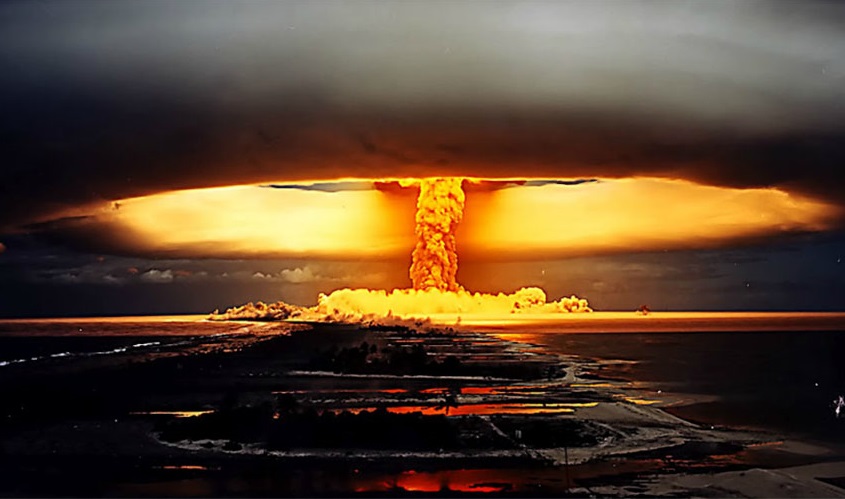
•2010 marked the inaugural commemoration of the International Day against Nuclear Tests.
2) National Sports Day: Nation pays tribute to Major Dhyan Chand
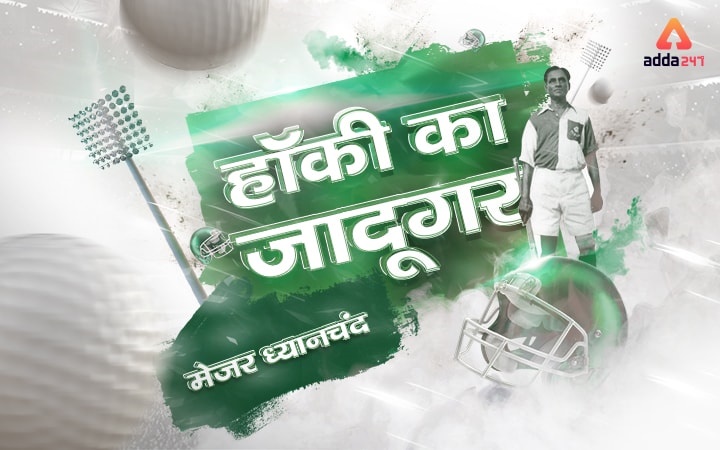
•He was born on 29 August 1905, in Allahabad, Uttar Pradesh in a Rajput family. His real name was Dhyan Singh. His mother’s name was Sharadha Singh and his father’s name was Sameshwar Singh. His father was a subedar in the Indian Army and played hockey for the Indian Army. He was trained under his first coach Pankaj Gupta, who conferred the title ‘Chand’ upon him in a bid to compare his praiseworthy skillfulness in playing hockey with the shining moon. In his early days, he had no interest in playing hockey, he loved wrestling instead.
•Under the captaincy of Major Dhyan Chand, the Indian hockey team won three Olympic gold medals in the year 1928 at Amsterdam, in 1932 at Los Angeles, and in 1936 at Berlin. In Berlin Olympics, he did not wear shoes in the final match to increase his speed. India won in the match 8-1. In 1956, he retired from the Indian Army with the rank of Major and in the same year, he was honoured with the Padma Bhushan award. He took the position of Chief Hockey Coach at the National Institute of Sports, Patiala. The Government of India renamed The National Stadium in Delhi to Dhyan Chand National Stadium in 2002 in his honour. Adolf Hitler offered him a senior post in the German Army, but Chand refused his offer. From 1926 to 1948 he scored over 400 goals in his career. He was popularly known as “The Wizard of Hockey” for his magical touch, superb control, creativity and extraordinary goal-scoring feats.
•He spent the last part of his life in his hometown Jhansi, Uttar Pradesh. It is very sad to know that in his last days, this legendary player was completely forgotten and ignored by the nation for which he played. He was not able to get proper medical treatment towards the end. This worthy son of India silently left on 3 December 1979. After the demise of chand, the Government of India issued a postage stamp and a First Day Cover in honour of Dhyan Chand. He is the only Indian hockey player to have a stamp in his honour.
•On Aug 29, we remember the name of Major Dhyan Chand, who revolutionised hockey and won respect for our country through this game.
3) Prime Minister launches Fit India Movement
•The nation-wide Fit India Movement aims to motivate every Indian to incorporate simple, easy ways of staying fit in their everyday life.
4) 12th India Security Summit held in New Delhi
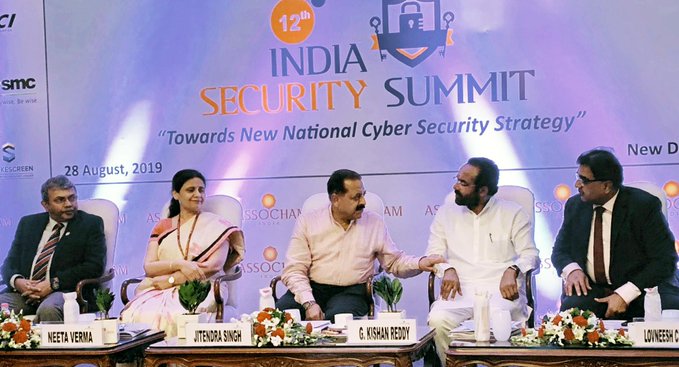
•Protection of critical national infrastructure, emerging cyber threats: incidents, challenges and response, are some of the issues which were discussed during the conference.
5) Lionel Aingimea becomes the new President of Nauru
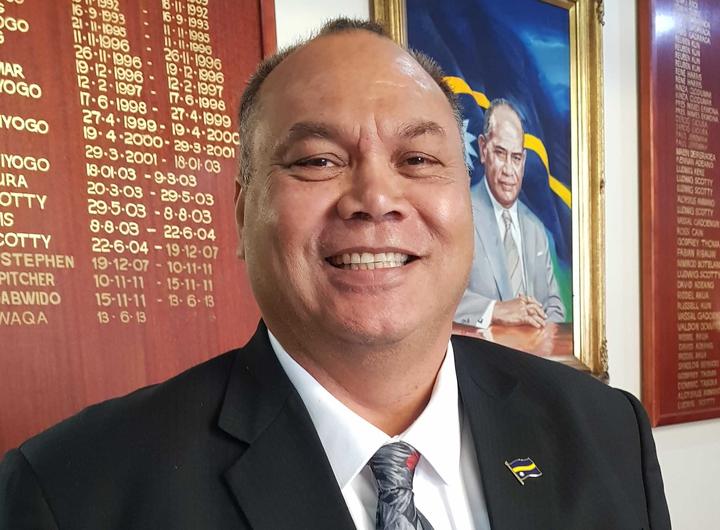
6) Pavan Kapoor appointed as India’s Ambassador to UAE

7) Pramod Agarwal to succeed Coal India chairman AK Jha
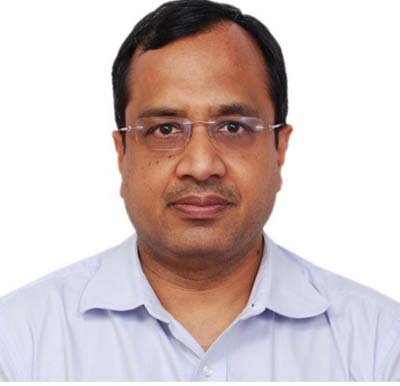
•Agarwal is currently principal secretary for urban development and housing department in Madhya Pradesh.
8) Ind-Ra cuts GDP growthforecast in FY20 to 6.7%

The HINDU Notes – 29th August 2019
VisionIAS
15:15

📰 Age of third-degree torture is over, Amit Shah tells police
Home Minister stresses on need for a robust forensic set-up that will make it impossible for criminals to escape the clutches of law.
•The age of third-degree torture was over and the police should stay a step ahead of crime and “criminal-minded people” through better investigation and forensic evidence, Union Home Minister Amit Shah said on Wednesday
•He was speaking at the 50th foundation day of the Bureau of Police Research and Development (BPRD), a think-tank under the Ministry of Home Affairs.
•Mr. Shah said old police concepts should be revived for investigation and mere “reliance on phone tapping” was not going to yield results. He stressed on need for a robust forensic set-up that would make it impossible for criminals to escape the clutches of law.
•“Modernisation plan for police forces should be made for at least 10 years... This is not an age of third- degree [torture], police should stay ahead of crime and criminal-minded people,” Mr. Shah said. “It should use forensic science to get irrefutable evidence against the suspect that would lead to conviction in court,” he said.
•The BPRD should work on a proposal to amend various sections of the Indian Penal Code and the Code of Criminal Procedure (CrPC) after seeking suggestions from the people. “If a Class XII student wants to join police force, he should be properly guided and arrangements should be made. The BPRD has submitted a proposal for this and it will be placed before the Union Cabinet soon,” he said.
•Mr. Shah said that in the British era, the police were raised to protect their interests, but now the duty of the police was “protection of the people.” Since Independence, more than 34,000 policemen had lost their lives in the line of duty.
📰 Common code of conduct proposed for legislative bodies
RRB JE CBT 2: Cancellation & Rescheduling Notice by RRB Kolkata
VisionIAS
11:45
RRB JE CBT 2: Cancellation & Rescheduling Notice by RRB Kolkata
THE HINDU NEWSPAPER IMPORTANT ARTICLES 29.08.2019
VisionIAS
06:50
Wednesday, August 28, 2019
Daily Current Affairs, 28th August 2019
VisionIAS
15:53

1) Govt Launched mobile app “Janaushadhi Sugam”
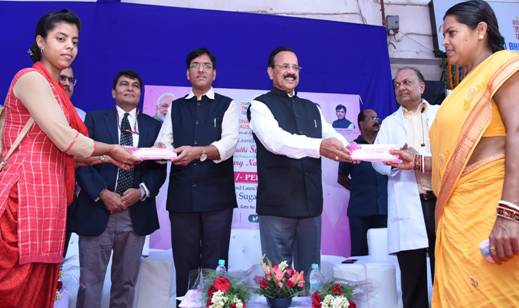
•“Janaushadhi Sugam” mobile application would have user-friendly options like- to locate nearby Janaushadhikendra, direction guidance for the location of the Janaushadhikendra through Google Map, search Janaushadhi generic medicines, analyse product comparison of Generic vs Branded medicine in form of MRP & overall Savings, etc. The mobile application is available on both Android & iOS platforms.
2) Tamil Nadu govt launches Education TV for school students
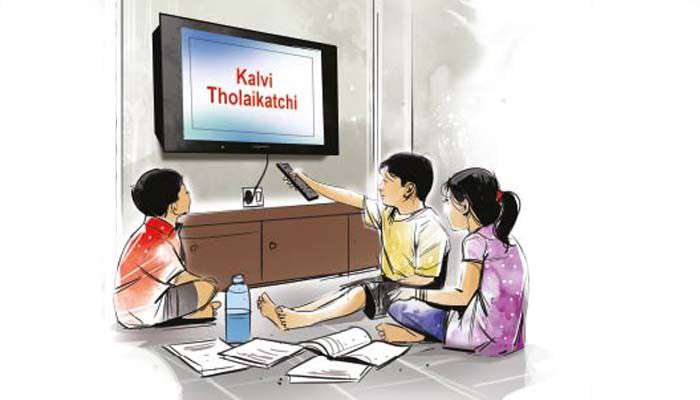
3) App launched to help Paralympians in Tokyo

4) NOAPS-single window clearing system of NMA launched
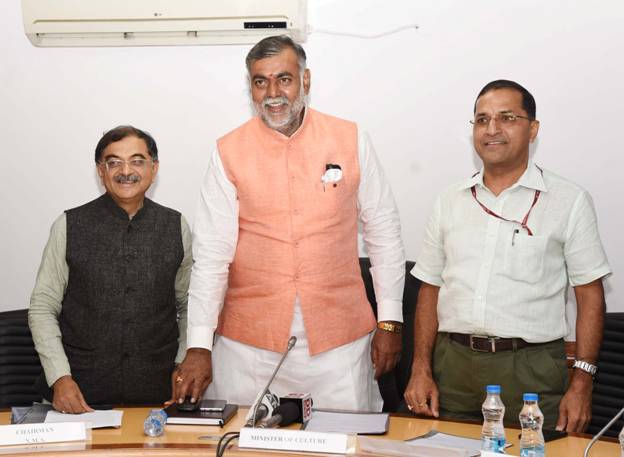
6 new states will be part of this Integrated Online Application Portal with Urban Local Bodies Count. The details of States and Urban Local Bodies are as follows:
•Madhya Pradesh (378)
•Andhra Pradesh (110)
•Haryana (15)
•Punjab (10)
•Jharkhand (3)
•Telangana (1)
Earlier this system was available only for five urban local bodies of Delhi and one urban local body of Mumbai.
5) IAF’s Shalija Dhami becomes first female flight commander
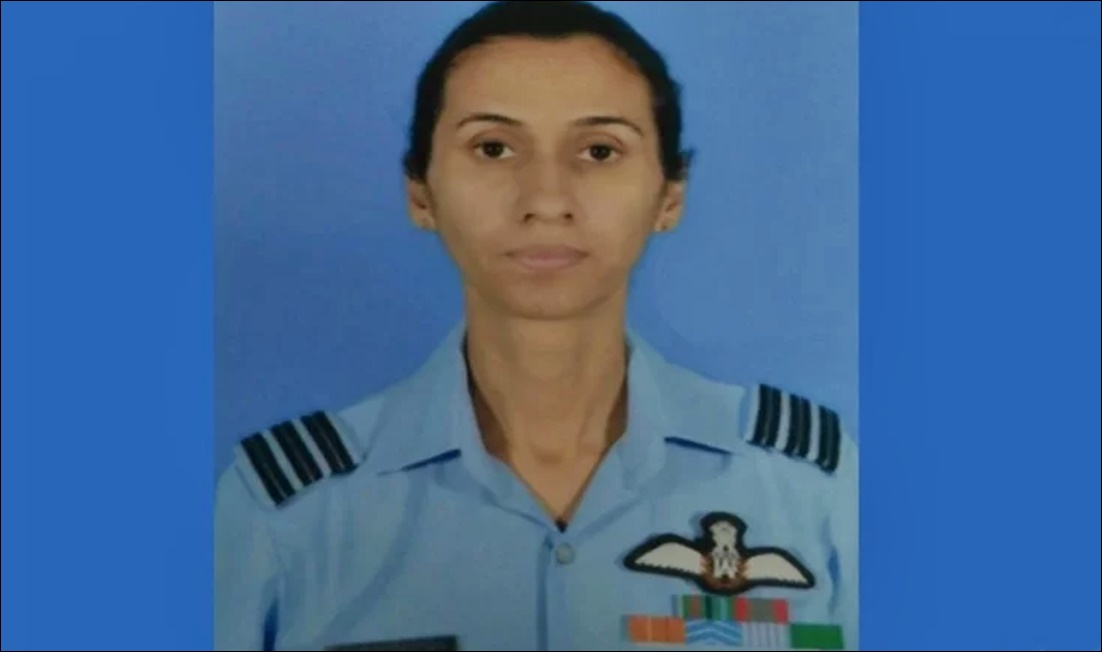
6) ONGC’s CMD honoured with Distinguished Fellowship of IOD, 2019
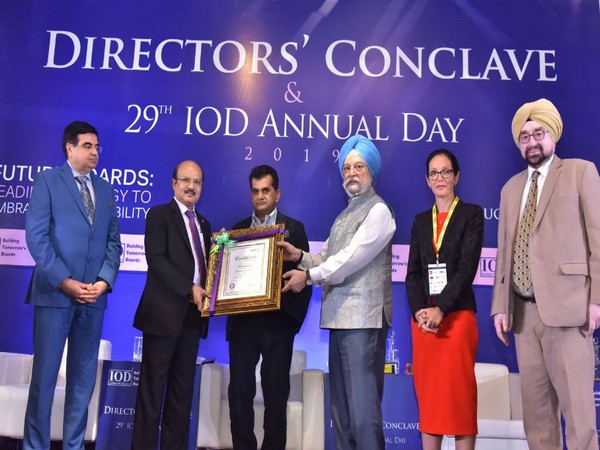
•The prestigious Fellowship honour was conferred to Shanker in appreciation of his distinguished contribution to business and society. The theme of this year’s IOD Annual Day Ceremony was ‘Future Boards: Leading Strategy to Embrace Sustainability’.
7) Indian documentary ‘I’m Jeeja’ wins award at We Care Film Festival
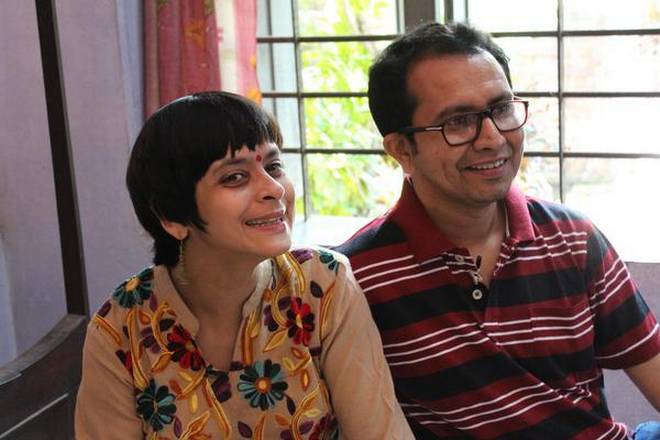
8) Eric Cantona to be honored with UEFA President’s Award
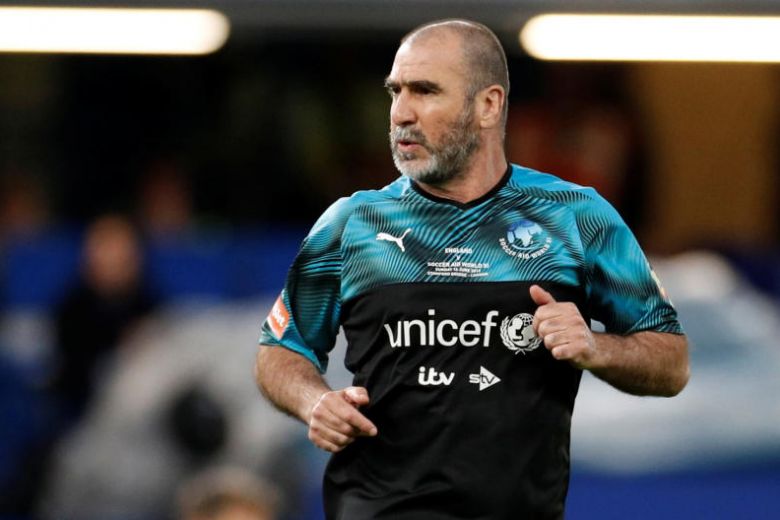
The HINDU Notes – 28th August 2019
VisionIAS
14:20

📰 A monumental litmus test
How the Supreme Court decides the cases around Article 370 will have a deep bearing on democracy
•Perhaps not since the Indira Gandhi-declared Emergency has the Supreme Court of India faced an examination such as this, where its moral fibre is at stake. There, in ADM Jabalpur v. Shivkant Shukla, the court, by its own subsequent admission, came up lamentably short. The court, by ruling that fundamental rights, including a person’s right to life, could be validly suspended during a period of emergency, left democracy teetering on the edge of the abyss. Now it faces a litmus test nearly as monumental. The cases before it concern not only the validity of the government’s decision to virtually revoke Article 370 of the Constitution — and, with it, the special status that Jammu and Kashmir (J&K) enjoyed — but also the legality of the chilling limitations placed on civil liberties in the region. How the court decides these cases will have a deep bearing on the destiny of democracy in India.
A dilution of Article 370
•Article 370, which pledged relative autonomy in governance to J&K, was premised on the idea that ultimate sovereignty rested with the people. But time after time this basic compact has been weakened by successive regimes at the Centre, including by India’s first elected government. For its part, the Supreme Court has invariably overlooked these transgressions, by affirming the Union government’s position of hegemony. The presently executed moves, however, push the envelope further, by stripping Article 370 of all its meaning. And this the government has achieved not through debate and deliberation but through constitutional obfuscation.
•When the Supreme Court hears arguments on the questions arising out of these events, the government will likely point to the political nature of the dispute. In defending its decision, the government has already offered a plethora of justifications — in this, the important and critical need to re-assimilate in J&K, Kashmiri Pandits who suffered a harrowing exodus from the State has scarcely found mention.
•But regardless of the ends of the government, what ought to be clear is that the rule of law demands that any state action is bound by the Constitution and its limits. After all, that is precisely why we have a Constitution underpinning our democratic republic. When judges exercise their minds on the simple legality of the government’s orders it should be evident to them that the quashing of Article 370 is unlawful. And that, for the court, is all that should matter.
•Article 370’s raison d’être is contained in the Instrument of Accession signed by Hari Singh, the then Maharaja of J&K, on October 26, 1947. The provision, in constitutionalising the terms of that accord, stipulated that Parliament could legislate for J&K only over matters concerning external affairs, defence and communications. Where Parliament intended to legislate over additional areas otherwise provided for in the terms of the accession, it could do so by consulting the State government. But where it proposed to enact laws beyond the agreed subjects it required not only the State government’s concurrence but also the express ratification of J&K’s Constituent Assembly.
•The Article, therefore, clearly envisaged the idea that J&K would have a Constitution of its own. Its chief drafter, N. Gopalaswami Ayyangar, was conscious of the fact that any permanent arrangement between the State and the Union could be arrived at only once the State’s Constitution was brought into force. It was to put in place an arrangement in the meantime that Article 370 provided a few other stipulations. For example, it granted the President the power to make orders applying specific provisions of the Constitution other than Articles 1 and 370 to J&K. But even such orders required subsequent ratification by the State’s Constituent Assembly. It was thus clear that once J&K’s Constitution came into force, together with Article 370, it would form a cohesive means of governing the State.
Condition for abrogation
•This position is further illuminated by Article 370(3). The clause, as Gopalaswami Ayyangar put it to India’s Constituent Assembly, “explains the whole of this article”. It accorded the President a power to declare either the Article in full or any part of it inoperative on the recommendation of the Constituent Assembly of the State. This recommendation, as Gopalaswami Ayyangar explained, was a “condition precedent” to any effort at abrogating the provision.
•No doubt, this original arrangement was meant to be temporary. But it was temporary only in the sense that the structure of governance would eventually be elucidated by the J&K Constitution that the State’s Constituent Assembly was meant to frame. On its drafting, the Assembly could have well chosen to recommend to the President the abrogation of Article 370 (which could have even meant separation from the Union). But given that no such recommendation was made, the intention was writ large: the Article would continue to represent the sole means of taking India’s Constitution into the State. Although this disposition has since been disturbed in various different ways, invariably at the instance of the Indian government, as the Supreme Court recognised as recently as in December 2016, unless the conditions in clause (3) were met, Article 370 would have to remain.
Misreading Article 367
•The Union government has not entirely disputed this position. But in finding itself thwarted by these constraints, what the government has offered us is an illusory and coercive change to the constitutional bargain. Article 367, which provides rules for interpreting the Constitution, has been modified insofar as it applies to J&K by providing that wherever the term “Constituent Assembly of the State” was used in Article 370 it would refer only to the “Legislative Assembly of the State”. Nifty as this might sound, the substitution, in effect, does not merely alter Article 367, but it also impinges on Article 370 itself, something which the provision, as Ayyangar was keen to stress on, decidedly prohibits.
•Swiftly following this presidential order came a statutory resolution which suggested to Parliament the abrogation of the essential components of Article 370. But because J&K was under President’s Rule, Parliament had now stepped into the shoes of the State’s Legislative Assembly. This meant that, as a result of the newly shaped Article 367, it also acted as the State’s Constituent Assembly. The incongruity could scarcely be more evident. The Union executive vested in Parliament an unrepresentative constituent power, which meant it could recommend to the President the absolute nullification of Article 370. The upshot of all this was that a decision of portentous significance affecting J&K’s political future was made even though the people of the State were afforded neither an opportunity to speak for themselves nor the chance to speak through their own elected representatives.
•Our Constitution’s brilliance is contained in its fidelity to principles. Those principles are not fungible. Under no circumstances do they license government to use the excuse of a supposed noble end to trump the Constitution’s guarantees. The processes concretised by the Constitution are important because they partake in them a vow to pay heed to the consent of the governed. When those processes are allowed to be broken they strike at the understanding that sovereignty rests with the people.
•To borrow from Annie Dillard’s inimitable words, in this case, casting aside constitutionalism feels like “sliding down the mountain pass and into the region of dread”. Already the extraordinary blockade of communication channels in J&K, and the detention of scores of people, including three former Chief Ministers of the State, have been regarded as unexceptional, and, even more ominously, as necessary consequences of the constitutional change. The judgment in ADM Jabalpur may well have been overruled since, but the ghosts of the court’s darkest days have not fully dissipated. In J&K, the legacy of ADM Jabalpur has persisted for decades. Now when the court reviews the government’s decisions it may want to recall its past blunders, especially the ones that entrenched its place in the annals of the Emergency’s history.


